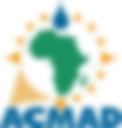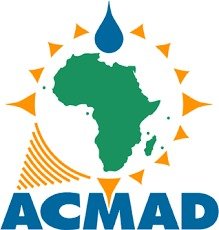ACCOF 18
The recent State of Climate Report for Africa reveal that over the past 60 years, Africa has recorded a warming trend that has become more rapid than the global average. In 2023/2024, the Continent experienced heatwaves, heavy rains, extreme floods the Sahel, tropical cyclones, and prolonged droughts. While many Countries in the Horn of Africa continued to suffer from exceptional multi-year drought, others experienced extreme precipitation events leading to flooding with significant casualties. These extreme events had devastating impacts on communities, with serious economic implications.
The African Continent, with abundant diverse ecosystems, rich cultural heritage, and growing populations, faces disproportionate burdens and risks arising from climate change-related weather events and patterns. These events cause massive humanitarian crises with detrimental impacts on agriculture and food security, education, energy, infrastructure, peace and security, public health, water resources, and overall socioeconomic development across the continent.
Considering these challenges, and as part of the implementation of the Global Framework for Climate Services in Africa through the Climate Services and Related Applications (ClimSA) Programme, the African Centre of Meteorological Applications for Development (ACMAD) and its partners are collaborating to coordinate, integrate and harmonize methods, tools and products to produce improved continental climate forecasts. More so, considering the recent climatic conditions observed during summer season from June to September 2024 in the Northern Hemisphere of Africa from Cape Verde to Djibouti, as well as the observed trends in Sea Surface Temperatures (SSTs) of Ocean Basins with rainfall activity in the Southern Hemisphere, ACMAD, in close collaboration with the designated WMO Regional Climates Centres (RCCs) and other Partners is organising the Eighteenth Africa Continental Climate Outlook Forum to contribute to mitigate the challenges of extreme weather events due to climatic variability and change in the Continent.
The main goal of the Forum is to review the recommendations of the ACCOF-17 and adopt an improved practical approach for the harmonization of forecasting methods and tools. In addition, the Consensus Continental Outlook statement for Africa will be generated and issued to raise awareness on the quality and derived benefits of an Integrated and Harmonized Climate Outlooks at Continental level for adaptation to climate change across African Regional Economic Communities (RECs).

Registration of participants and virtual meeting connection logistics
Session meant to kickstart the meeting by registering participants on site and allowing remote users to connect ensure perfect synchronisation.

Remarks by ACMAD, AUC, OACPS, WMO, GHANA Met

Group Photo

Review the Outcomes of ACCOF 17


Performance of the May-September Forecast
Performance of the May-September 2024 Precipitation Forecast and Assessment of Climatic Conditions and their Impacts during MJJ, JJA, JAS 2024
Where:
- MJJ - May June July
- JJA - June July August
- JAS - July August September


Discussion on the performance of the past seasons
Discussion on the performance of the past seasons: Which drivers were involved? What was effective? Challenges.


Seasonal forecast for northern Africa and impacts during the winter season

Seasonal forecast for Central Africa and impacts during the ONDJF season
Seasonal forecast for Eastern Africa (ONDJ 2024-25)

Seasonal forecast and impacts of tropical cyclone season
Seasonal forecast for Southern Africa (NDJF 2024-25)
Seasonal forecast for (November 2024 to February 2025)

Discussion and Wrap-up of Day 1

Presentation of the Consensus Outlook and Discussion
This sessions aims at looking at the forecast produced and whether they are in agreement with each other, it entails detailed discussion on the methods instituted to produce the forecast with expert knowledge as well as the models in mind


ClimSA Capacity Building Program in Africa


Seasonal Forecast Using Machine Learning (AI) Challenges & Opportunities


Discussion on Road Map for data and methods harmonisation


Intro / Background: Overview to the African Drought Monitoring and Advisory System (ADMA). Tools, Datasets Methods/Platforms Used


East Africa Regional Drought Monitoring & Early Warning System. Tools, Datasets Methods/Platforms Used


West Africa Regional Drought Monitoring & Early Warning System. Tools, Datasets Methods/Platforms Used

The African Drought Advisory Bulletin
The African Drought Advisory Bulletin: What is it? How is it produce? Challenges


Group Practical session: Understanding Combined Drought Indicator and underlying indicators



Way forward for a co-design and co-produced Continental Drought Bulletin

Wrap up of Day 2 and Recommendations

Registration of participants and virtual meeting connection logistics

Remarks by ACMAD, AUC, OACPS, WMO, ANBO, GHANA Met

GROUP PHOTO

Experience Sharing on User-Based Participation and Socio-Economic benefit of Climate Services at National Level


Presentation Socio-Economic Benefit Tool


Impact Based Forecasting in AMHEWAS

Overview of the Continental User interface Platforms and Available climate services


Presentation of ACCOF-17 Outcome and Verification


Joint Climate/User Group Session to assess/verify the Performance of the ACCOF-17 Products in the Agriculture, DRR, Health and Water sector



Presentation of ACCOF-18 Consensus Forecast

Joint Climate/User Group Session to analyze the implications of the NDJF ACCOF-18 Products and proffer adaptation/mitigation measures and advisories

Joint Climate/User Group Report Presentation and integration of recommendations in the final ACCOF-18 Statement


Discussions and Wrap-up of Day 3

Presentation on best practices for communication channels, user engagement and feedback mechanisms for climate services

The African Drought Advisory Bulletin: Users Perspectives and opportunities


